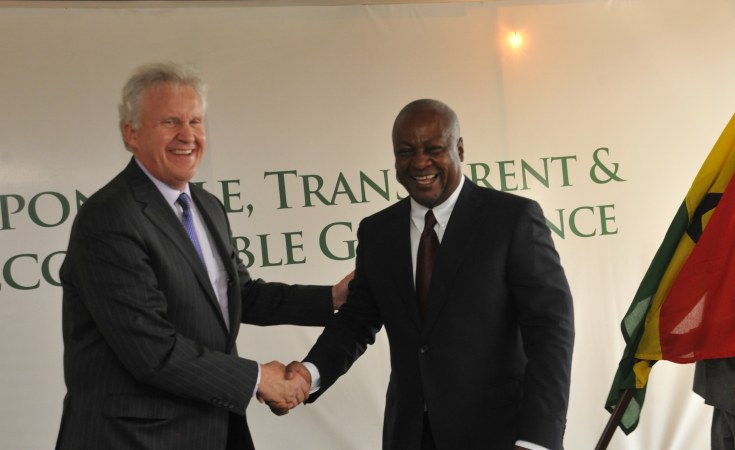A first-of-its-kind power programme was given the go-ahead recently when the Ghanaian government signed a 20-year power purchase agreement for the 400MW greenfield Bridge Power project. The development will be undertaken by the Early Power Consortium, which is comprised of Endeavor Energy (an Africa-focused independent power development and generation company), Sage (an independent trading firm in Ghana), and GE, through its power division.
While Ghana has committed itself to universal electricity access by 2020, the challenge lies in the capacity to meet this goal. According to Ghana’s Institute of Statistical, Social and Economic Research, the country loses between $320-million and $924-million per year in economic growth and productivity due to the current power crises; this new project has been given the green light to help alleviate these power shortages.
It’s estimated that Ghana needs an additional 2000MW of power generation over the next five years and this project will provide 12% of the country’s planned power generating capacity by 2020. The Bridge Power Project is the first Ghanaian project to use a Put Call Option Agreement, which allows the government to purchase the plant and associated infrastructure in the event of an early termination. This means that any payment under this agreement will result in the government gaining a valuable asset in return.
The Bridge Power project being undertaken in the coastal town of Tema will be developed in two phases with 194MW planned for phase 1 and 206MW for phase 2. “Bridge Power is the first of its kind in Ghana. We’ve customised the project to provide quick and reliable energy production for Ghanaians in order to assist Ghana’s economic growth and to create jobs,” said Endeavor CEO Sean Long. “Our understanding of Ghana’s long-term vision for its power sector is built on having reliable and diversified energy, and Bridge Power checks all those boxes.”
GE will provide 400MW of power generating capacity through nine GE gas turbines and two purpose built GE steam turbines in two separate combined cycle gas turbine configurations. In combined cycle plants, the waste heat from the first turbines can be used to power other turbines, thereby generating more electricity and making the project more efficient. The gas turbines also operate independently, allowing for a more efficient match of supply to demand.
GE Ghana CEO Leslie Nelson said: “Bridge Power for GE is much more than just another power plant. This project represents the first integrated gas-to-power project we will successfully deploy on the continent. Our goal is to successfully create and implement a gas-to-power project that included a full gas solution and financing package, and then deploy this model to other countries that are not endowed with cost-efficient fuel sources.”
Sage is responsible for the fuel supply and created the gas-to-power fuel solution for the project, using liquefied petroleum gas (LPG) as the primary feedstock for the plant. When completed, the plant will be the largest LPG-fired power plant in the world capable of being fuelled by natural gas and diesel. Endeavor is providing the majority of the equity investment and will manage the construction as well as operating and maintaining the plant.
“There is great value in working alongside and pitching in our expertise with international companies with the experience and expertise of GE and Endeavor Energy,” said Sage CEO Emmanuel Egyei-Mensah.


